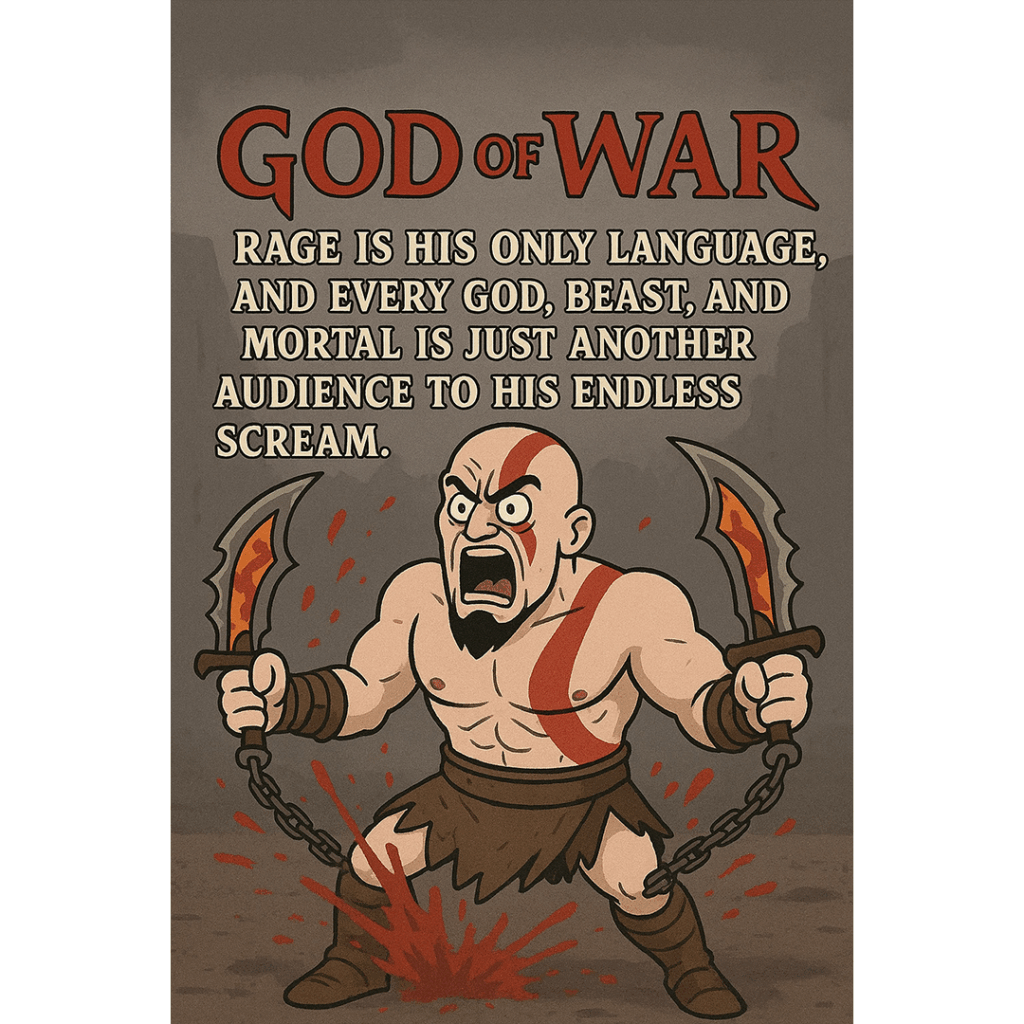

God Of War: Proving that yelling louder is a character arc.
Ah, God of War, Sony’s little Greek tragedy about how anger issues and the world’s tightest loincloth can carry you straight to the top. Released in 2005, this was the game that answered the age-old question: what if Hercules was divorced, unemployed, and fueled by Red Bull and unresolved trauma? Enter Kratos, a man whose personality ranges from “furious” to “furious but slightly wetter,” whose solution to everything is to stab it until it stops being a problem.
Combat is a ballet of brutality: chains, blades, blood, and the occasional Quick-Time Event reminding you that pressing the “circle” button on command is the real key to heroism. Why learn strategy when you can mash buttons until Olympus itself files a restraining order? And yet, it’s beautiful. Kratos pirouettes across the screen, decapitating minotaurs with all the grace of a ballerina who just got evicted.
The story? Simple. Ares tricked Kratos into murdering his own family, and now Kratos must kill everyone else until someone hands him closure. Along the way, he slaughters an entire pantheon’s worth of creatures, because therapy wasn’t included in the Collector’s Edition. Don’t worry, though, there are puzzles! Nothing heals the trauma of familial homicide like pushing a crate while harpies claw your face off.
The real genius of God of War is how it disguises itself as mythology when it’s really just male wish fulfillment. It’s not about gods, destiny, or honor. It’s about yelling louder than anyone else in the room and hoping no one notices that you’re essentially just a topless man with two knives on strings. In the end, God of War is less a video game and more a stress ball for anyone who’s ever screamed at rush-hour traffic. Cathartic, brutal, and just dumb enough to make you feel powerful.
©2025 Project Mayhem, Inc.
All trademarks referenced herein are the properties of their respective owners.